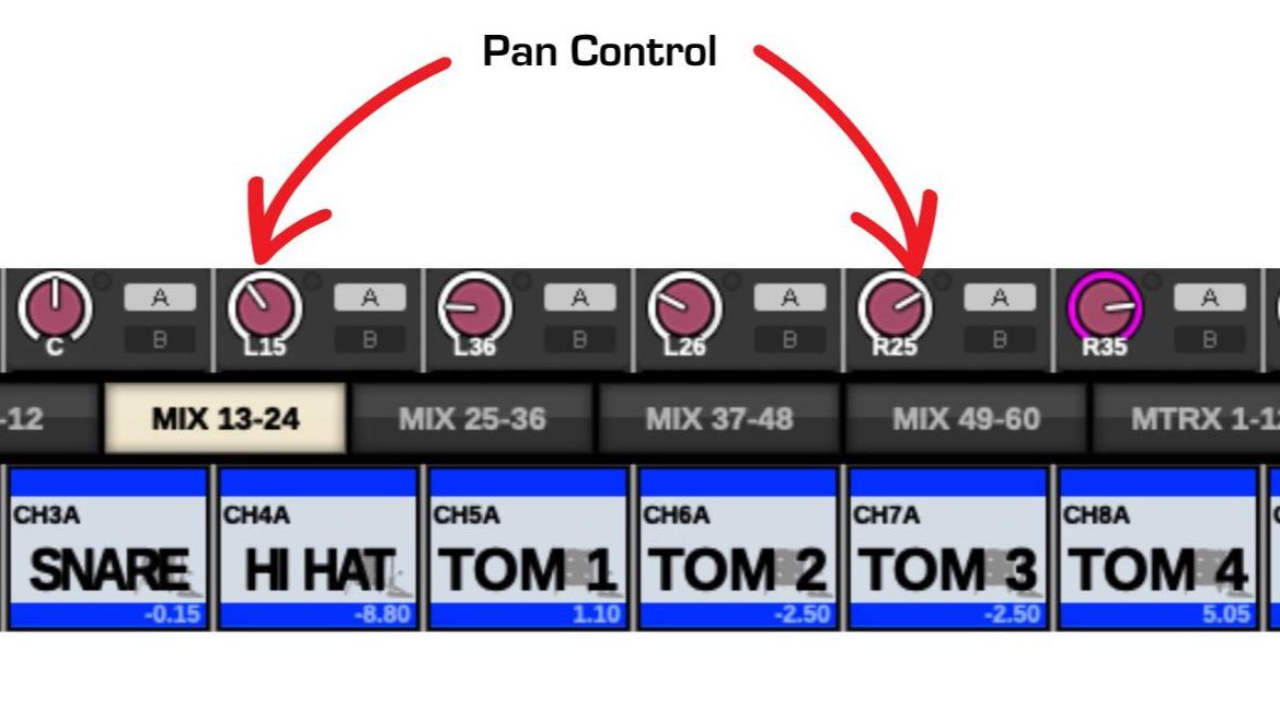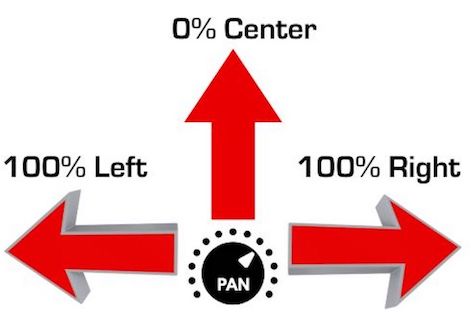Using the Pan Control in Mixing
May 07, 2025
What is the Pan Control, and how to use it to create space?
Panning is the process of placing a sound in the stereo field—left, center, or right—using a pan knob or slider in your DAW or on the soundboard.
Every channel in your mix has a pan control that tells the audio signal where to "sit" between the left and right speakers or headphones. It's like deciding whether a sound should be coming from stage left, center stage, or stage right.
How Panning Works
Most DAWs use a pan pot that goes from:
100% Left (L) to
0% (Center) to
100% Right (R)

When you turn the pan knob:
-All the way to the left- The sound comes only from the left speaker.
-Center- The sound comes equally from both speakers.
-All the way to the right- The sound comes only from the right speaker.
Some DAWs also let you pan stereo tracks with dual pan controls, one for each side, which gives even more precise spatial placement.
Why Should You Use Panning?
Panning is ideal for:
- Creating width and adding dimension to your mix
- Preventing clutter in the center of the listening field
- Improving clarity by separating elements of the mix in the stereo space
- Adding a live feel to the mix (as if you're hearing a band on stage)
Best Practices for Panning
Here’s a quick guide to where you might place common instruments:
INSTRUMENT TYPICAL PAN POSITION
Kick and Snare - Center
Lead Vocal - Center
Bass Guitar - Center
Hi-Hat - Slightly left or right
Overheads (Cymbals) - Hard left and right
Guitars (stereo or doubled) - One hard left, the other hard right
Keys - From 50% left/right to hard left and right
Background Vocals - From 50% left/right to hard left and right
Effects (reverb, delay, etc) - Hard left and right
These are just guidelines. Feel free to experiment, play around with it, and see what sounds best to you and the particular track.
Pro Tip: If two instruments are stepping on each other in the mix, first try moving them away from each other with the Pan. If that doesn't work, use EQ to create space and clarity between them. For more info on how to use EQ to create space and clarity, see my course LISTEN!
Panning is one of the simplest and most useful tools available to you. Use it to create balance, space, and clarity. When used intentionally, it transforms a flat mix into a much more interesting, three-dimensional soundscape.
By: Michelle Sabolchick
Get Exclusive Mixing Tips and Content That I Only Share With Email Subscribers
I hate SPAM and will never sell your information, for any reason.




